
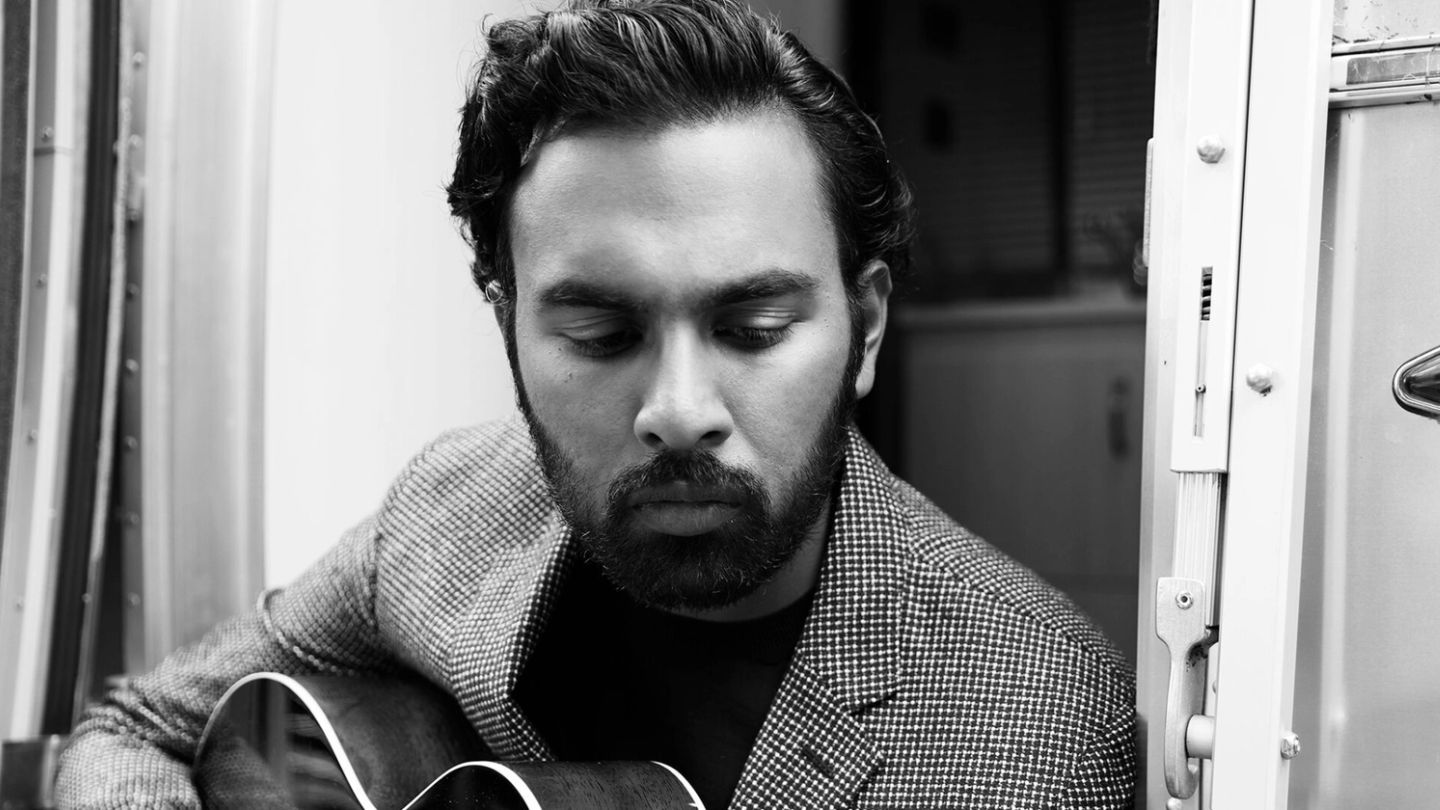
Words: Joseph Bullmore
Photography: Maarten de Boer
Give the people bread and circuses, they used to say. But nowadays it seems that bread is the circus. In lockdown, everyone’s a loafer. You can barely set foot on Instagram anymore without someone shoving a banana bread under your nose, while a white bloomer is the new black. This is quite a wonderful state of affairs, by the way — especially at a moment when simple carbs seemed to be slipping out of fashion forever. It speaks to the wholesome new timbre of the modern mood. Tells us we’ve got our priorities in order again. Reminds us that good things take time and precision and love. The smell of rising dough is the smell of hope. I’ll get fat if you do.
Himesh Patel has started baking, too. I wouldn’t mention it usually — it’s just that the new hobby seems to fit him down to a tee. He is, by his own admission, a sensitive soul. You can imagine he’s astute with the timings and tender with the dough. I suspect he’s got some nice mid-century kitchenware in his North London flat. (And I’m certain he’d look good in a chef’s hat, too.)
When we speak, on a scorching Friday afternoon in the heat of lockdown, he has all the leisurely, considered calm of a philosopher-poet. He is 29, but, by his own admission, old before his time. When he first hit the big screen in Yesterday, Danny Boyle’s film about The Beatles (or lack of them), it was like a breath of fresh air — a leading man with nuance, warmth, charm, and a baked-in likability. (He’s been very good in other things, too, but we’ll get to those later.) In a deeply pleasant conversation, Himesh and I spoke about his upbringing in a tiny village in Cambridgeshire, the beautiful chaos of the universe, and the importance of having a paper round.
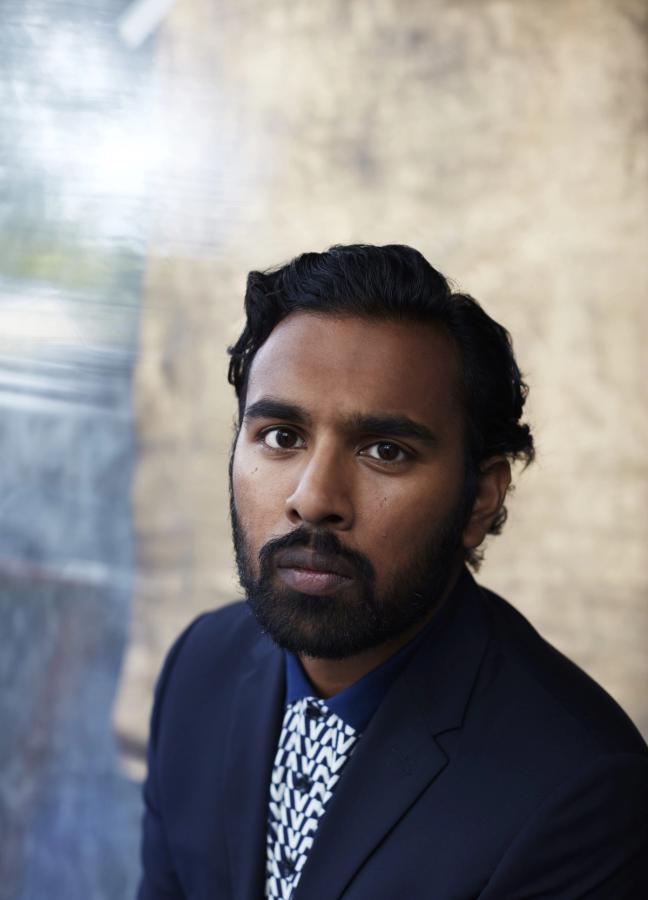
Himesh, thanks very much for joining us. It feels a bit eerie to be meeting for the first time over Zoom — but perhaps this is what people call ‘the new normal’. How are you faring in lockdown?
I’m doing alright. I’m trying to take the time to do things I was going to be doing anyway. I’m just trying to use the time positively.
Are you baking? Are you water colour painting?
You hit the nail on the head first time. I’ve got into baking.
Is it a banana bread by any chance? That seems to be the bread of the moment, so to speak…
I did make one last week. But I started off with a white bloomer, and I just made a sourdough, which turned out not too shabbily. I was very lucky that I managed to find enough flour, which seems to be the new precious commodity. There’s clearly some sort of hive mind of middle class professionals in North London, and everyone seemed to have had the same thought at the same time…
I often think that maybe actors might be better suited to the lockdown than other people — not just because they can be slightly introverted, perhaps, but also because it’s sometimes quite a solitary profession in general. Do you think you’re well prepared for it?
I think I’ve generally been alright at staying in. I was kind of craving this time anyway — it’s been a time to get on with some stuff that I’ve not had time to do of late, because I’ve been working. The only strain, of course, is the distance from people and from your loved ones. I’ve been away a lot, and I thought this might be a nice time to go spend a few days with my family, and now obviously that’s not possible. That’s where this thing is, of course, really hard for everyone.
Are your family still based in Cambridgeshire? That was where you grew up, wasn’t it.
Yeah, they’re still there.
What was it like growing up there?
It was lovely. I loved it for the most part. It was such a small village, and my parents still run the shop. So everyone knows us, and we got to know a lot of people. It was also quite hard, though, in some ways — because it is small, and at times can feel quite isolating. Especially when you’re young and you can’t take yourself out of it.
My parents still work very hard, and they’re still working through this because the shop serves a lot of villages so they’re quite an essential service. But the village is lovely and the people are lovely. And at a time like this, to live in the countryside must be some form of relief.
Did you have itchy feet as a child? Did you have dreams of big city life? Did you want to be a star?
I suppose so. I think really, though, it was less about being a star and more about just really loving acting. Drama school was kind of my weekly refuge, in a way. My weekly haven, to go and have some fun and just learn all the different things that go into being an actor.
What were you like at school? Were you sporty, or academic? Or was acting the one thing for you?
The acting stood out. I seemed to have a knack for it. I was sort of academic. Education was very important to my family, because my mum was afforded an education and for a woman of her generation growing up in India that was quite a privilege. So she understood the value of education, and to bring your children up in a country where education is freely available – that was an important thing.
You couldn’t be the class clown, then.
No. My sister, who’s older than me, had got a PHD in biochemistry and now works for the University of Cambridge, and she set a very high bar, academically speaking. My parents let us be our own people. But I was never going to be that academic because my instinct was a creative one.
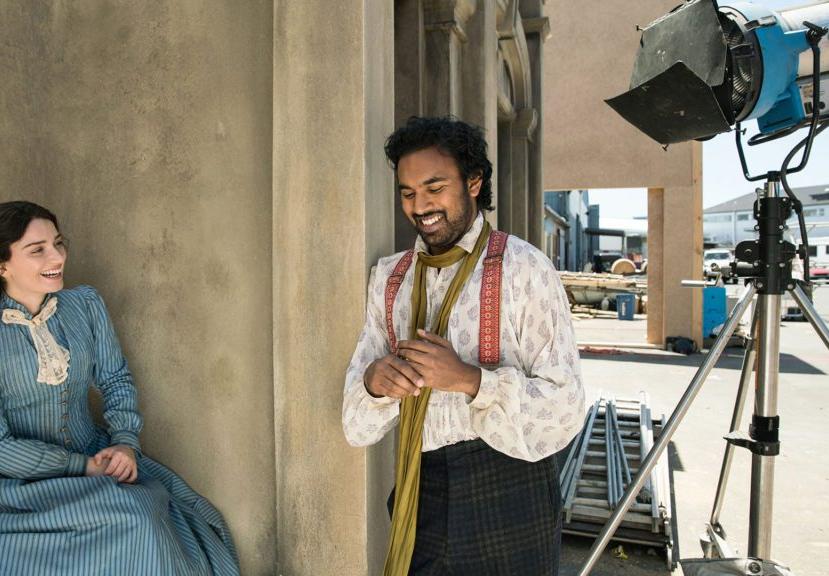
Himesh with co-star Eve Hewson on the set of the Luminaries
I heard a brilliant story about one of your early school plays…
Yes, the play was This Is Your Life, but for Father Christmas. I played Michael Aspel, and for anyone who’s not seen This Is Your Life, he’s the presenter with the big red book. So I got to be on stage the whole time and I really enjoyed it. My mum tells me that the teacher said to her, “He seems to have a bit of a knack for this — there’s a local youth theatre. Maybe you should look into it.” And I went there for six, seven years, every single Saturday. That was where I met my best friend, and as I say: it was kind of a haven for me.
Then I moved onto the Young Actors Company in Cambridge, and they have a Saturday theatre school and a Sunday screen academy. That introduced me to the world of cameras and how things work behind the screen. And not long after that I got the audition for Eastenders, and that was where the career started.
Eastenders is a bit of a deep end to be thrown into…
Yes. It’s about four episodes a week, and it’s on all the time. Generally Eastenders is shot show to show, and you’ve got a lot to get done in a short period of time. In any one day, you can be going between up to about eight episodes-worth of material. They don’t really mollycoddle you in any way. You drive yourself to work and you pay for your own food, which is often not the way on film sets. So I think that was a really good grounding for me, and I think a lot of the people I worked with were really good actors who just made it about the work.
There was no danger of you becoming a child star and going off the rails, then…
No. And the other thing was that I remained at home with my parents for the first five years — and I carried on doing the paper round.
Early starts, I imagine, on a paper round…
Yes — perhaps not as early as they would have liked. But as early as I could manage.
A lot of people would say your breakthrough came in the movie Yesterday, which came out last summer. Did that film feel different at the time, because of the cast and the directors and the big names behind it?
It did feel like a big step into a whole new world. It was my first feature film, so I was getting used to how they function. But yes, of course, it was Danny Boyle and it was Richard Curtis, and I was acting alongside Lily James and Kate McKinnon, and lots of brilliant actors who were established in the film industry. But I’m glad that it was all those people, because none of them made me feel like I didn’t know what I was doing. None of them patronised me in any way. I was always made to feel as if I belonged there. It was really a dream of a project. And then when it came out it did quite well, and it did feel like a step up. And doors were opening to projects I don’t think I would have done had I not done Yesterday. It does feel like a career progression, for sure.
One of the themes of the film is of a young man being thrust, quite quickly, into sudden and extreme fame. And I wonder if your life changed at all in the summer in a similar way. Was there an odd parallel between you and the character Jack?
It’s funny really, on paper that sort of makes sense. But in reality I don’t feel like my life has changed, personally speaking. I still walk down the street without the need for any disguise. Even when the poster was on the side of buses, I never noticed it. If anything, It’s just been a lot of people being very kind and just passing on their appreciation for the film. It’s nice to hear when someone has enjoyed the work. But there’s nothing I feel that really changed for me personally. I’m fortunate really — it doesn’t always work out that way.
I remember seeing an interview with Danny Boyle about the film, where he said that when you were singing the songs in audition you had a kind of soulful melancholy about you. Are you a sensitive soul, do you think?
Yes, I think so. I think I’ve always been that way. Though sometimes I think, “Well, you can’t constantly be this way otherwise you’re not going to get anything done!”
Do you think about things a lot? Do you get in your own head, so to speak?
Yes I do. And I’m getting better at using that positively, and knowing when it’s a thing to keep in check. But I kind of like that about myself, really — because I think there’s so much to explore. That’s probably what Danny was thinking of during that interview.
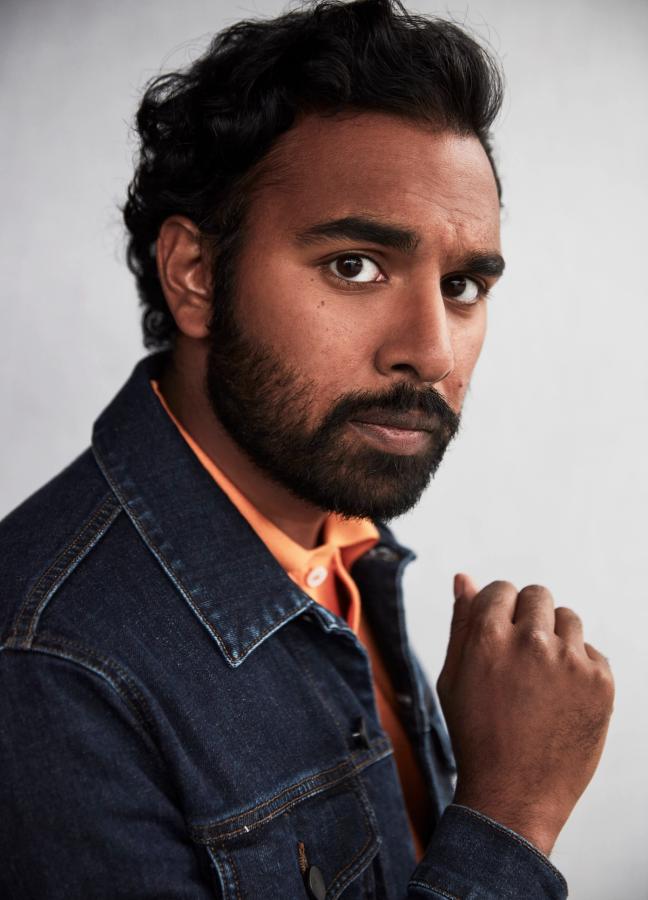
I watched the first episode of The Luminaries [a brilliant new BBC drama out this summer] this morning. It’s very good fun — it’s all about gold prospectors in New Zealand. But it’s also got this theme of luck running through it, especially with your character, Emery. Are you a superstitious man? Do you believe in luck? Or do you think life is all just the random oscillation and collision of particles, so to speak?
It’s very strange. I think I sit somewhere in the middle of those things. Scientifically, I think it is all just complete chaos and randomness. But there’s a beauty in the way that things manifest within that. Because, as humans, we imbue things with meaning. If we objectively look at something we can see it’s a random sequence of events — but to the people involved it’s going to mean something.
For example, when I first auditioned for Yesterday, the first thing I did was send the tape off. I was in New York at the time doing a play. And I found out that they wanted to meet me back in London. I was in the subway, and I was in one of those tunnels in between the lines, and there was a guy at one end of the tunnel busking. And as we got closer he started playing I Wanna Hold Your Hand by The Beatles. I just thought, “Oh, that’s a busker busking The Beatles — that’s pretty commonplace.” But then I glanced at him as I was walking past and he winked at me. In that moment, I thought: that’s really strange. That means something to me. Even though it’s just a random sequence of events.
It’s a lovely program, because it’s got all that rich, escapist, period detail. And even though it’s quite a hard slog, the settler life, it looks like it would be fun to step out and explore the New World back then. Do you ever find yourself thinking about other eras? Is there one you’re drawn to more than any other?
It’s funny really. Because of my ethnicity I kind of think: well, this is a pretty good time for us. And there’s still a struggle in some ways, but it’s generally a pretty good time.
I think about what, in reality, it would have been like for Emery, but we don’t really go down that road (there are hints at it in the story, and there are certainly some moments with the Chinese characters, where you get an idea of how it was for them). But it wasn’t part of the story — and nor should it always be. It’s important to see people of all colours in period dramas, in anything — and it to be normalised and not always have to be about that.
For me, if anything, I’m always kind of wondering what it’s going to be like in the future. We’ve hit 2020, and there are people who are being born now who are going to live to see the year 2100. And you just wonder what that’s going to be like. When I was in New Zealand, I met this great aunt of mine. She’s lived in Wellington since the forties. She’s in her nineties. The change to the world that she’s seen — is it even graspable? How do you fathom it?
You were also in Avenue 5 — Armando Iannuci’s new-ish show. I’m often told there’s a lot of improvisation on his sets. Was that the case?
Yes, but to a lesser extent than I imagined. But it’s actually quite meticulously done in the way it draws from improvisation. We get there in the morning and run through the scene as it’s written. Armando would be there everyday, which was just incredible. He’d be there with his team of writers, and they’d watch what we’d do at the beginning of the day, and make suggestions, change things if it wasn’t working, and then either we’d go with that, or they’d step out of the room, put their heads together and come back with new pages. It was amazing how they just pieced it all together. I often think about those writers. Armando, Simon Blackwell, Jesse Armstrong. They really had such an influence on television in general over the last 20 years.
They’re often my dream dinner party guest list when that question comes up. I suspect I’d be a huge disappointment to them in both my culinary skills and my conversation. What’s Armando like?
He’s such a lovely, generous man. He was a joy to work with. You can tell that he loves doing what he does for a living. It’s the same with people like Danny Boyle. People who just work and are happy with the challenges that come with being a director. There was just an underlying happiness to be there and a joy to do what they do. That really makes you go: I’m going to give this person my best.
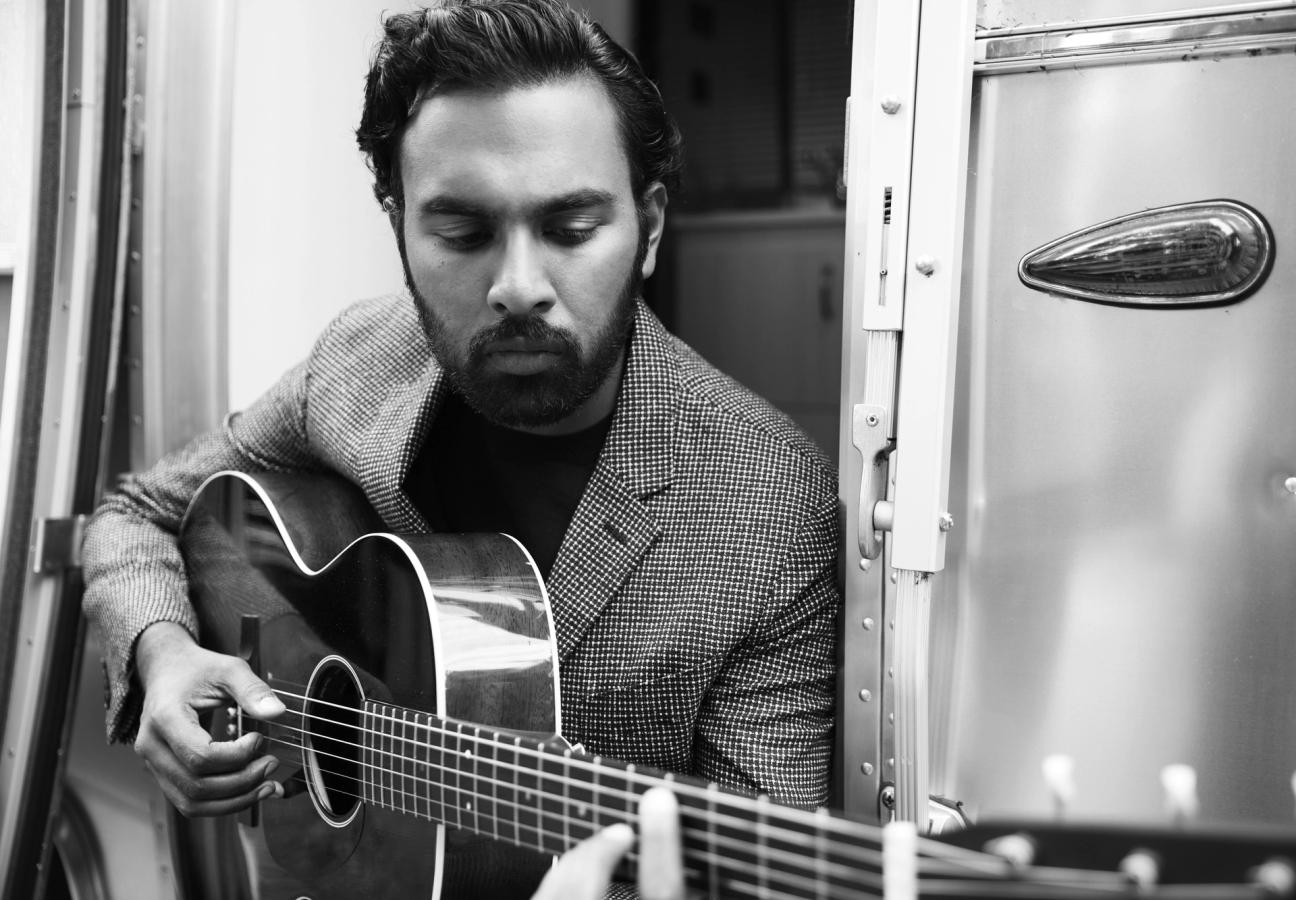
You turn 30 in October, I’m sorry to remind you of that —
No. I’m ready for it. I’ve been old before my years for a while.
Do you think about age and milestones at all?
I think I’m just going with the flow. Because you just can’t know. What use is it trying to even plan? No matter what level of privilege you’re at as an actor, you just don’t know what your next project is going to be. I’m just going to take it as it comes. In any sort of creative pursuit, you can’t really have a five year plan.
I often go on people’s Wikipedia pages I admire, and try to work out how old they were when they had their breakthrough — and then get very depressed when I realise they were 22 years old…
I think it’s so easy, when we have that level of access to people we admire and to their story, to sort of think you can model yourself on them. But I think it’s not healthy to be constantly comparing yourself in that way. Which is something I say as if I practice it every way, and I don’t — I find myself comparing myself 24/7. But I’m aware that it’s not a good thing to do.
But how does that age sit with you — does 30 feel about right?
I think so. I say bring on the next ten years. Let’s see what happens. I just want to make sure we keep making good work, and strive to make better work.
The Luminaries is coming soon to BBC One.
More actors: Stuart Martin is making a name for himself…
Become a Gentleman’s Journal member. Find out more here.


